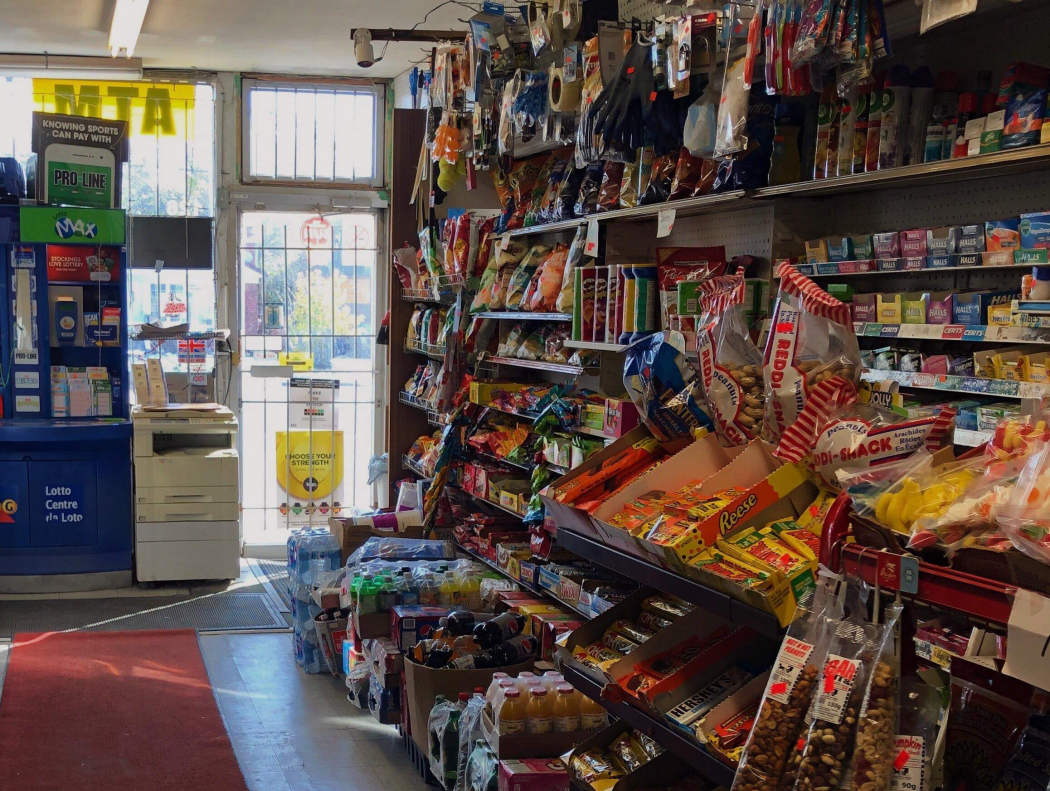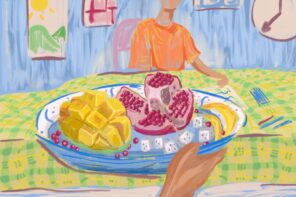As much as my younger self saw our shiny, sugar-filled convenience store as a kind of wonderland, my parents would always remind me to keep this part of their lives a secret. And so I did, not knowing why, sensing that this promise carried a hidden weight.
Upon immigrating to Canada, my parents were forced to navigate the bearings of a new city, and myself with the great ordeal of growing up. With Mandarin being their first language, they began relying on me to speak to others for them, which I felt was abnormal: a clear indicator that we didn’t belong. Suddenly, the responsibility of interpreting and translating this new culture was thrust upon me; I had yet to grasp it myself. I began to feel embarrassed when they could not understand strangers, only smiling and nodding in response, as if it meant something. I began to despise how they couldn’t be the kind of parents my other classmates had, and how I couldn’t be a careless, needy child.
Perhaps my mother and father hoped to preserve the secret of their convenience store because they believed it to be shameful, and perhaps I began to believe this for a time, too. I acquired a sense that there were things they would never understand — that their lives would always be small and confined to a 400-square foot corner shop.
It is clear to me now that much of my parents’ lives running this small store were spent for others. In witnessing the progression of lives, their own could never be insignificant. By learning what was universal and superior to language, they were wonderful and kind and the rest fell away in importance.
I don’t remember what our lives resembled before they became responsible for the convenience store; it was a place that always seemed to be there, never needing to announce itself into my life. I was still young when the store passed into my parents’ hands from their previous boss and friend of many years. It was where he had built his life decades ago, and they hoped it would be what it was for him: somewhere to begin.
The loudest noise always was the lotto machine and I imagined there to be a woman with a bright voice who lived inside, spurring out prophecies to those who dared chance their luck.
The store stood on the end of a small plaza. It was the kind you only enter in afterthought — a nondescript row of small businesses and hole-in-the-walls joined together like Tetris pieces. They were old and peeling, but in that way, familiar. Our shop was a long rectangle with buttery tile and a windchime that hung above the entrance. In the back, there was a door we opened in the summers so that the warm breeze sluiced in, and we could enjoy the sounds of the neighbourhood. The loudest noise always was the lotto machine and I imagined there to be a woman with a bright voice who lived inside, spurring out prophecies to those who dared chance their luck. My parents tried to fill their single aisle with every possible brand of junk food and candy one could desire, so that upon squinting my eyes, the place blurred into a kaleidoscope of glazed and bloated colour; it was my very own utopia.
My mother often took me to visit the flower shop beside us, owned by a large and warm woman with a bellowing voice who convinced me there was nothing else one could want in life but flowers and sweet scents. The last time I saw her, when I was twelve and tall, she marveled at how large I had grown, how fast time escapes you, how everything had changed but this little plaza. For a while afterwards, her store windows became plastered with newspaper instead of bouquets, and my mother told me that her business could not survive. She had to move away and I realized then that not all change is as wonderful as a little girl growing up.
Other times, when it was just me, I lay on a popsicle fridge in the back, listening to the customers come and go, talking about their lives, so willing to share both the good and bad.
On Saturdays, when our family was still young, we would stay with my parents until they closed at night — my brother, grandmother, and me. There was never enough space for all of us, only a small slice of tile in the back. Here, we waited for the hours to pass, until our bodies grew sore and the light in the store harsh; yet, it was still grand to arrive and leave together. Other times, when it was just me, I lay on a popsicle fridge in the back, listening to the customers come and go, talking about their lives, so willing to share both the good and bad.
Over time, frequent customers became recurring characters whose lives we contrasted with ours. There was a woman who came nearly every day for the sole purpose of gifting my mother or father a moment to use the bathroom. A short middle-aged man named Guy wore nothing but tailored suits and bought lottery tickets worth hundreds of dollars at once. Other times, he would arrive late at night, drunk and befuddled, only to lament his sorrows. I learned then that, united in both the minute and grand emotions, people may seem different, but they are mostly the same.
I learned that this was how friends were made in the world — not with sudden breakthroughs of connection, but in subtle, inconspicuous ways.
My parents did not know much English, but they collected tokens of this new culture in their pockets to dole out: phrases like, “Great weather today!” and, “Busy morning?” and simply, “Beautiful!” They smiled and waved and laughed with the customers even when they could not understand what was funny. These small bits of life were shared with one another until both began to wonder about and care for the other. I learned that this was how friends were made in the world — not with sudden breakthroughs of connection, but in subtle, inconspicuous ways.
In the days when I grew tireless waiting for them, as children do, my parents would give me buckets of coins to sort and piles of scratch tickets to rip by the dotted lines; at the time, I felt I was making a great contribution. It is clear to me now that even then, new and foreign to Canada, they understood more than I ever did, to make a child feel important is a great and noble thing. They understood the feeling of magic that even something like a small store could instill.








